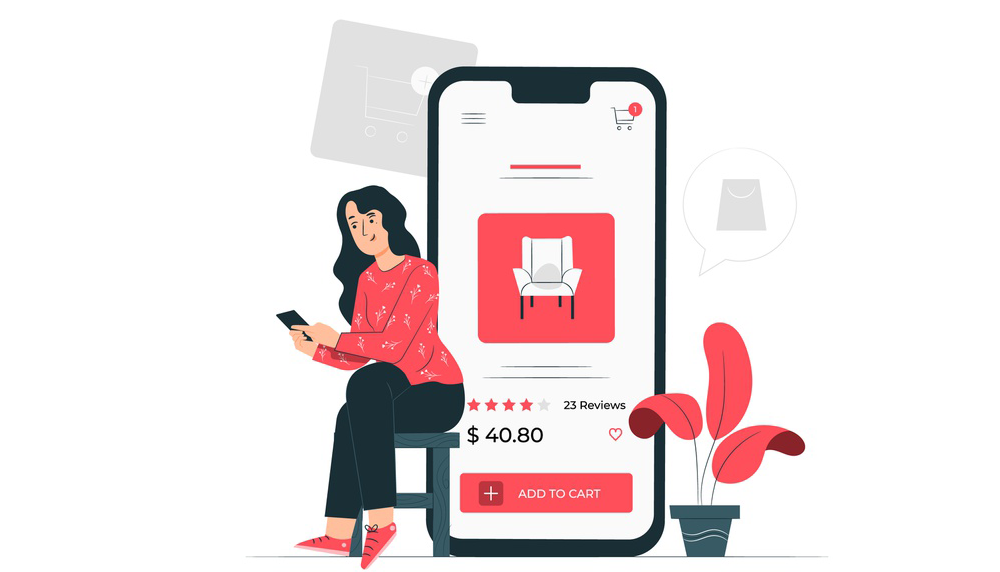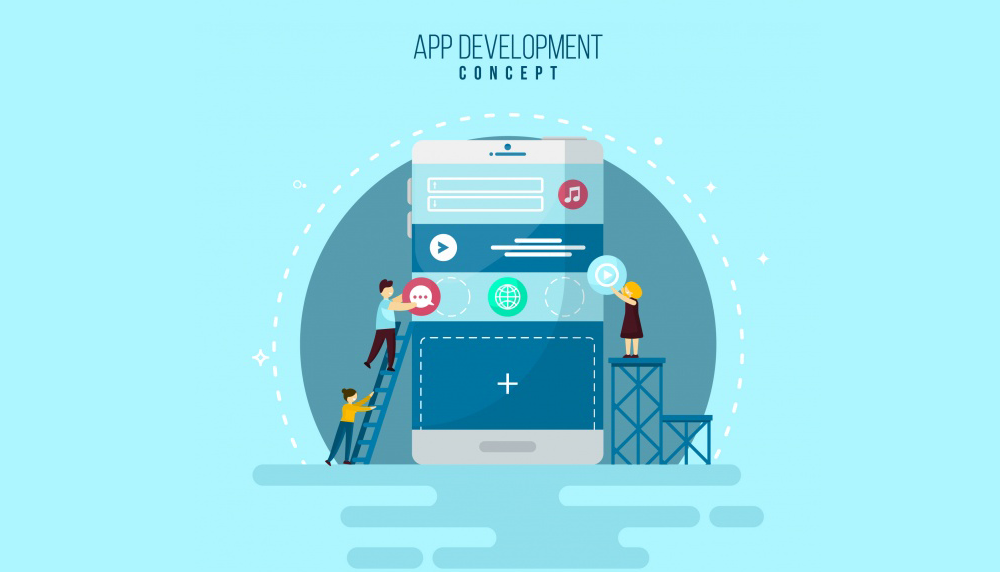Have you ever wondered why Flutter is the best platform to make hybrid apps? We are in a dynamic world of mobile and web technology, which has given rise to Flutter for Cross-Platform App Development. This has instantly revolutionized the market for mobiles for developers, stakeholders, and even users.
Google has grabbed the attention of the world via the launch of Flutter, the latest Software Development Kit (SDK). This cross-platform framework was designed to meet the rapidly increasing tech demands and to make cross-platform development more efficient.
Many developers and businesses consider Flutter for Cross-Platform App Development as an excellent selection because it gives room for building great and highly interactive hybrid applications. Flutter is arguably the best open-source, free cross-platform for mobile application development as it speeds up mobile development processes and significantly minimizes the cost of application production, thereby helping developers build beautiful application UI with smooth animations. These are some of the attractive benefits of using Flutter for Hybrid Mobile App Development.
With a single codebase, developers can use Flutter to create a fantastic mobile UI framework for both iOS and Android. And since Flutter uses the Dart programming language, it makes it easier to develop hybrid mobile applications that carry a combination of native-like performance as well as ease of development while maintaining visual consistency on platforms such as iOS, Android, Windows, Linux, and macOS. So you can see why Flutter is the best platform to make hybrid apps, keep reading as we dive into more details.
Dart Programming Language: Basis for Flutter Framework
Dart is a programming language developed by the search engine behemoth, Google, to make the Flutter platform much more accessible and convenient. This programming language is utilized by developers interested in developing server, web, and mobile apps. The language is also the perfect choice for those trying to make use of IoT devices.
In other words, Dart programming language comes with several benefits that have significantly contributed to what Flutter is today – a noteworthy milestone in the realm of mobile application development as well as IoT devices.
Dart programming language is very easy to learn and should not pose a considerable challenge for neophytes in the mobile app development universe. Veteran developers and professionals have found the language very similar to C# and Java.
Flutter for Hybrid Mobile App Development
1. Architecture
The Flutter framework is built using the Dart programming language, which uses the Skia ++ engine. It is much bigger and comes with most of the components. Unlike React Native, Flutter does not, in most cases, require a JavaScript bridge in order to facilitate communication with native components. Frameworks such as Cupertino and Material Design are bundled within the structure. In other words, everything a mobile app developer would ever need to facilitate the building of highly interactive or engaging mobile applications is present inside Flutter. And this has proven to increase its performance significantly and this is yet another reason why Flutter is the best platform to make hybrid apps.
2. Hot Reload
Another top-notch feature that has helped Flutter to remain highly competitive and preferred when it comes to the mobile hybrid app development is Hot Reload. The Hot Reload offers a super-instant view of any changes made by mobile app developers in the mobile application. If you have worked on mobile application development or know someone who does, you would appreciate this remarkable feature’s handiness.
With this noteworthy feature present in Flutter, developers don’t need to always run the mobile application for every change they make or wait for several minutes so that the changes in code may reflect on screens. Instead, the Hot Reload feature provides that change within seconds. This makes fixing errors and bugs when using Flutter for Cross-Platform App Development a walk in the park, thanks to Hot Reload. Put differently, Hot Reload will save you a lot of valuable time, effort, and money as you develop a hybrid mobile application for your business.
Custom Widgets
The user interfaces in Flutter-based mobile applications are created using customizable, protected, and highly responsive widgets. Widgets – which are customizable according to the specific requirements of users or customers – are used to create shapes, graphics, text as well as animations in mobile applications. Developers don’t need to bother looking for third-party libraries because everything is bundled into Flutter itself. These widgets are arranged in layouts and devices and can be used to develop active and extremely portable mobile applications. This flexibility is yet another reason why Flutter is the best platform to make hybrid apps.
3. One-stop Solution
If you are looking to save time and costs when developing your mobile application, Flutter for Cross-Platform App Development is the way to go. You can quickly develop mobile apps that work seamlessly across all platforms while giving you the native experience. Developing a mobile application on Flutter for Cross-Platform App Development is not only a technologically sound idea, but it also shapes your business interest in terms of timing and costing. What is more, you will require a handful of workers for the development of the mobile app on Flutter as against hiring and paying different developers that will work on native platforms.
4. Advanced Receptive System
Flutter for Cross-Platform App Development is loved for its remarkable way of making complex APIs of UI in an unsophisticated custom manner, thanks to its extraordinary receptive frameworks. Moreover, its intense formats and substantiation widgets enable you to build UI animation and 2D gestures without any hassles.
5. Testing
One of the most crucial aspects of developing any kind of application – whether mobile, web, etc. – is testing. This is to ensure the mobile app works as smoothly as expected and to see if there are any bugs or errors that may require fixing before it is released to the public. Flutter for Cross-Platform App Development provides a rich set of tools for testing mobile applications at various levels, including unit, integration, and even widget levels.
6. Native Performance
The truth is that many organizations out there love and prefer native mobile applications for business. And this is primarily due to the feel or experience that users of mobile apps enjoy when transacting with these organizations. However, Flutter for Cross-Platform App Development framework is changing the narrative these days, which is more than enough to make you rethink whether you should opt for native applications or invest in hybrid mobile app development.
You will still get and enjoy the native performance with Flutter app development. Flutter will also assist in the development of effective and standardized UIs. Flutter-based mobile apps will readily modify UIs of the applications based on targeted languages, location, and text.

What Makes Flutter Better than Other Cross-platform SDKs?
Flutter is bettering almost every aspect of mobile application development while significantly reducing all the hefty application development costs.
So, what makes Flutter a much better option than most of the other cross-platform SDKs out there? Here are a few ways:
-
Animation Library
One of the primary reasons developers love Flutter over any of the other SDKs out there is the simple fact that the framework has the capacity to build much better UI/UX-based mobile apps.
Developers can rely on Flutter for Cross-Platform App Development to provide a genuinely large variety of animations for both iOS and Android. In fact, developers get the entire animation library at their disposal to use any way they see fit.
This implies that with no limited choices whatsoever, whatever mobile application developers decide to build, will face many others that are not Flutter-based.
-
Precise and Straightforward
Developers are no longer burdened with the stress of learning a new language whenever they want to build specific mobile apps. This is because they can now build apps for different platforms without anything hampering their performance and speed.
Flutter for Cross-Platform App Development gives users the opportunity to be multilingual and have that edge needed in highly intricate mobile application sessions. The Flutter platform is very straightforward and precise.
Even if you are a neophyte, you won’t have to rely heavily on the intricacies of the central language of the framework since Dart will do most of the job without sweat. This feature stands out as one of the many benefits of using Flutter for Hybrid Mobile App Development.

-
Widget Selection
Flutter for Cross-Platform App Development is terrific, and this is because users of the platform can readily choose from a full spectrum of widgets to go about with mobile application development.
These widgets are intricately cataloged in a glorifying way in order to ensure things are hassle-free and smooth for every developer. This remarkable spectrum of widget choices makes this excellent hybrid apps platform a functional beauty that is most welcome in the developers’ universe.
-
Highly Remarkable Performance
Flutter comes fully loaded to the brim with exquisite and interesting features that give it an edge when it comes to ranking among the best cross-platform SDKs in the industry.
Mobile app developers can quickly build multiple, action-packed, efficient, and fast-paced mobile applications, especially in terms of animations and user interface, in the most reliable way.
Google has promised that users of the Flutter framework should expect superlative performance levels because the cross-platform framework has been exclusively designed to achieve 60fps consistently.
The Flutter for Cross-Platform for hybrid Apps Development framework will never hamper anything in your mobile application development process but help you to become even more efficient. Bugs settle much faster than usual, and mobile apps are pushed out to the public much faster than native applications.
Interactions with native components have improved significantly, making running time the fastest as of today. The best thing is that cost-effectiveness is considerably lowered as well.
If anyone tells you that Flutter for Cross-Platform for Hybrid Apps Development is arguably the ‘king’ of all cross-platform SDKs out there, you have enough proof to agree with such a claim.
-
The Use of a Single Language
If you have read one of the earlier sections of this article, then you already know that Dart is the central language of the Flutter platform.
This programming language helps Flutter to function magnanimously and seamlessly for both iOS and Android mobile application development. You can even build applications for both platforms without any fuss whatsoever or need to change your coding style or any other factor.
This means that the Dart programming language makes a huge difference in the mobile app development universe as it helps the entire process become graceful and charming. These factors put together is why Flutter is the best platform to make hybrid apps
Benefits of Using Flutter for Hybrid Mobile App Development
In this section, we’ll take a look at some of the benefits of using Flutter for Hybrid Mobile App Development for your project.
1. Faster Mobile Application Development
This is the first of the numerous benefits of using Flutter for Hybrid Mobile App Development. Flutter impeccably supports both Android and iOS, thereby making it feasible for cross-platform application development. The framework allows developers to readily alter widgets as well as create a highly engaging and interactive native interface. This can significantly save you both resources and time.
2. Ability to Go Beyond Mobile
Thanks to tech demands, Flutter is presently moving away from mobile application development as it is now obtainable for both web and desktop embedding. This means that Flutter is no longer confined to mobile.
Developers can now operate or explore pure Flutter applications without necessarily altering source code within the web browser effortlessly. According to new updates, Flutter is getting upgraded from the usual cross-platform framework to a complete cross-platform application development package. This is yet one of the great benefits of using Flutter for Hybrid Mobile App Development.

3. Handy SDKs and Native Features
Flutter makes the mobile application development journey of developers far more attractive via third-party integrations, native codes as well as stage APIs. Users can readily access the SDKs and native features on both platforms. They can, therefore, reuse the programming languages downloadable for Android and iOS, such as Kotlin and Swift.
4. Impressive User Interface
Having an attractive user interface is a big plus for any mobile application. Flutter features Cupertino and Material Design for iOS and Android applications, respectively. These assist the mobile app developers in building highly engaging and aesthetically-pleasing mobile applications.
These sets of emotion-rich and visual-rich widgets make mobile apps look interactive and eye-catching on both platforms. Not only are these mobile applications easy to navigate, but they are also incredibly user-friendly.
5. Full Compliance with Design Standards
Flutter ensures every design part of the program on the particular OS conforms entirely to the design criteria. Each element of the program is up to date and is suitable for all devices.
Flutter is a remarkable platform for developing cross-platform hybrid mobile applications. The Dart programming language developed by Google and its complete support to both Android and iOS make it immensely workable for developing highly responsive mobile applications.
Google is currently working on a modular operating system known as ‘Fuchsia,’ which is written in Flutter. This compatibility-based operating system is anticipated in the tech world to replace both Android OS and Chrome.
With these details on the benefits of using Flutter for Hybrid Mobile App Development, you can now see why Flutter is the best platform to make hybrid apps.
So, if you are considering Flutter for cross-platform app development, you are on the right track.
